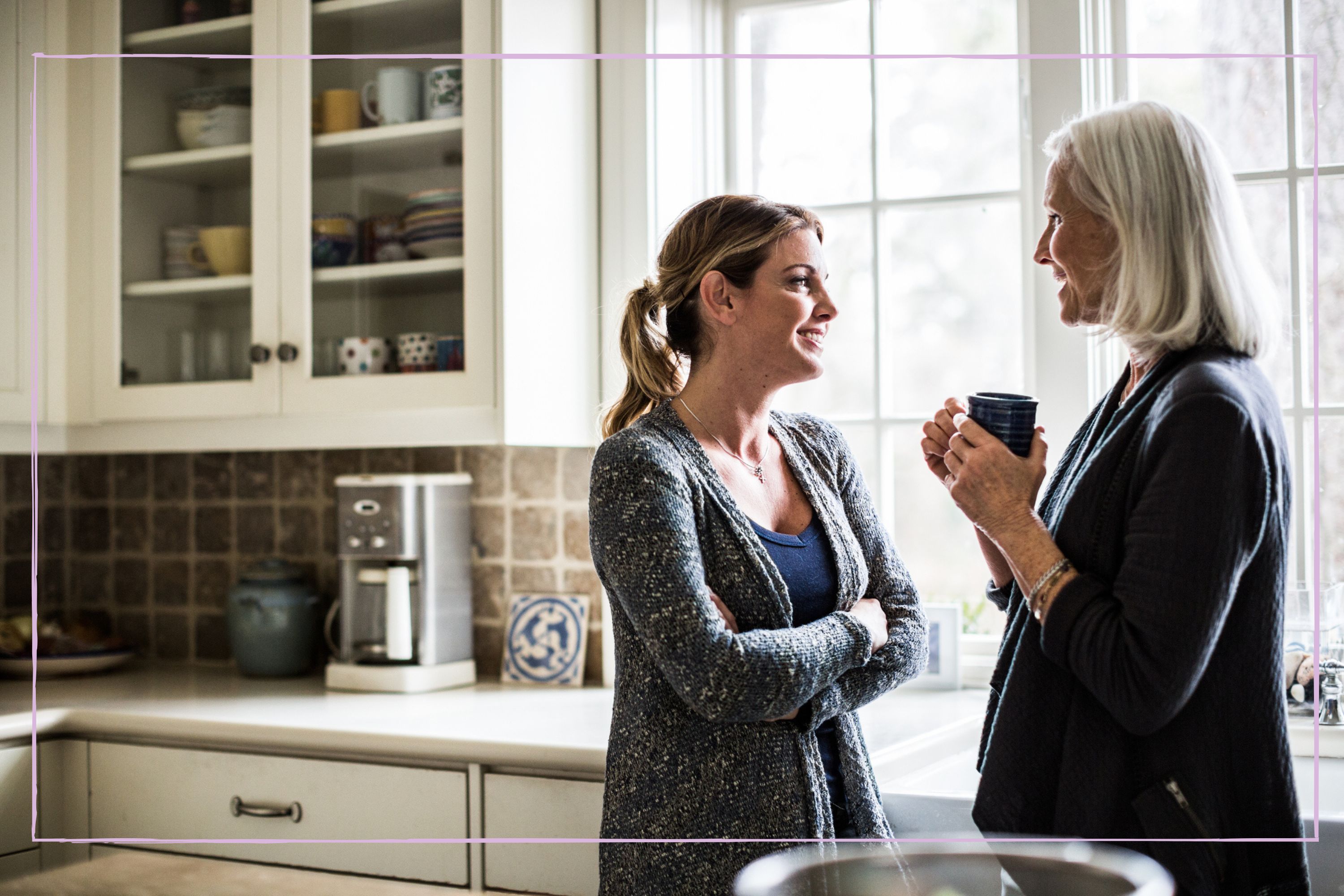
Adult child relationships with their parents sometimes need hard work to stay healthy, especially if past trauma is involved. A therapist has revealed six simple phrases adult children need to hear to heal and strengthen parental bonds.
It's understood that you can inherit your grandparents' trauma, even if you've never met them. Epigenetics - the study of how behaviours and environment can cause changes to the way your genes function - suggests events influence the structure of DNA, and are passed through generations using biological processes we don't even know are happening. If difficult experiences can be inherited in this way, actually living in an unstable environment is equally likely to affect children into adulthood - internalised patterns of negative behaviour can be repeated through generations, whether consciously or unconsciously.
Recent debate around smacking has shown this can damage parent-child relationships and be perpetuated in repeated cycles as smacked children grow up to do the same to their own offspring. Although some generations would argue smacking was just what happened when children were perceived as 'naughty,' parents can be supported to break negative cycles of behaviour, and address their own damaged parental relationships.
According to therapist and relationship and boundaries expert, Nedra Glover Tawwab, adult children can start healing a difficult relationship with their parents through validating phrases. To acknowledge past pain and demonstrate an understanding of their adult child's feelings, Glover Tawwab shared six powerful statements they can use to her Instagram account - these can pave the way to reforming strong bonds. Speaking to HuffPost, therapist Jor-El Caraballo added insight into the statements and why they're so important.
6 phrases adult children need to hear from their parents
- "I'm sorry." Two very simple words that can pack a powerful punch. Jor-El Caraballo explained that as adults reflect on their upbringings, they gain a clearer insight into how their parents’ actions affected them. He said "In some cases, those choices posed some challenges to their mental health. Being able to be validated, and apologized to, by their parents would be a huge win for adult children who are seeking to break some negative family cycles and move forward in their lives with better mental health."
- "I was in survival mode." This is relatable - nobody is suggesting parents deliberately undertake actions that could harm the relationship with their child. Often, circumstances out of everyone's control mean parents can't meet a child's every need. Glover Tawwab said parents can recognise what might have gone wrong by reflecting and saying "'If I had more support, if I had more resources, if I had more finances, if I wasn’t going through a divorce, if I wasn’t struggling with X, Y and Z,' like really recognising those things and being able to speak to them can be very healing for the adult child relationship."
- "I'm really proud of you." This is such a powerful statement to hear. No matter how old you are, recognition from parents is something you'll probably always want. Caraballo said "No matter their age, kids want to know their parents are proud of the person they’ve become and what they’ve accomplished. Hearing 'I’m proud of what you’ve done and who you are' can be a beacon of light for those who doubt their achievements and position in life."
- "Your life path is different than mine, but I support you." Some parents can push their children down unwanted paths, often believing they're doing the right thing. However, allowing children to make their own choices is optimal, even if parents feel sure it's not right for them. Having the respect and support from parents for making your own way, can feel empowering and boost emotional well-being.
- "Do you want advice, or would you prefer for me to listen?" This is a very important question to ask - there's quite a big difference between the two. "Adult parents have to remember that I, too, have bumped my head. I, too, have made bad decisions," Glover Tawwab explained, adding "And I am only speaking from a place of wisdom and knowledge after trying some of these things that my kids are talking about."
- "I'm still here for you." It's likely you'll never stop needing your parents, and hearing them say such a comforting phrase can offer much-needed solace. Caraballo concluded "While ageing parents should adjust their focus from spending the bulk of their time tending to their children to other personal pursuits, it doesn’t mean they can’t still be involved and respectful allies in their children’s lives. Figuring out the right boundaries while still maintaining an active presence and care is a delicate but important dance."
The post generated a lot of conversation, with many agreeing to the power held by the phrases. One wrote "I needed this post. As someone who has been on survival mode for years, I often messed up with my judgment. I say I've learnt a lot and could've done better."
Another was grateful for the post, but felt the discussion could be expanded even further. They said "As a mum of three children, I have one to add: 'I appreciate that you have much to teach me, and my hope is to stay open enough to learn.'"
Parenting can be difficult and messy, but negative cycles can be broken with understanding and support. As Glover Tawaab's words demonstrate, it's never too late to work on healing a parental relationship and moving to a place of strength and understanding.
Boundaries in relationships are so important, and our experts share how to implement them. You might be wondering how to spice up a relationship or look for ways to connect with your partner when you get some quiet time together - we have all the advice you need.







